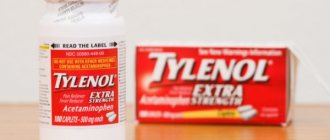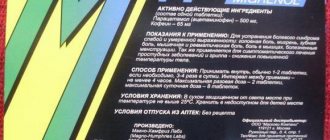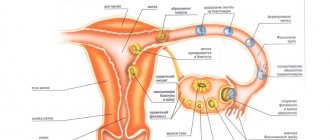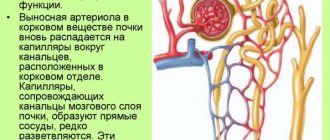Contraindications
Absolute (the use of Novalgin is strictly contraindicated):
- Acute hematoporphyria;
- Inhibition of bone marrow hematopoiesis (leukopenia and anemia, including hemolytic);
- Glucose-6-phosphate dehydrogenase deficiency;
- Severe liver and/or kidney failure;
- Conditions accompanied by respiratory depression;
- Acute myocardial infarction;
- Intracranial hypertension;
- Arrhythmias, arterial hypertension;
- Lactose intolerance;
- Lactase deficiency;
- Glucose-galactose malabsorption;
- Glaucoma;
- Alcohol intoxication;
- Complete or incomplete combination of bronchial asthma with recurrent nasal polyposis/paranasal sinuses and intolerance to acetylsalicylic acid or other non-steroidal anti-inflammatory drugs (including a history);
- Children under 12 years of age;
- Pregnancy and lactation;
- Hypersensitivity to the components of the drug.
Relative (Novalgin should be used with extreme caution due to the risk of complications):
- Moderate renal/liver dysfunction;
- Peptic ulcer of the stomach and duodenum in the acute stage;
- Bronchial asthma;
- Elderly age.
Novalgin® (Novalgin)
Symptoms
: (due to paracetamol) during the first 24 hours after an overdose - nausea, vomiting, pain in the epigastric region, pallor of the skin, loss of appetite. After 1-2 days, signs of liver damage are determined (pain in the liver area, increased activity of microsomal liver enzymes). Possible development of carbohydrate metabolism disorders and metabolic acidosis.
In adult patients, liver damage develops after taking 10 g of paracetamol.
If there are factors that influence the toxicity of paracetamol to the liver, liver damage is possible after taking 5 or more grams of paracetamol. In severe cases of overdose, encephalopathy and coma, acute renal failure with tubular necrosis (including in the absence of severe liver damage), arrhythmia, and pancreatitis may develop as a result of liver failure.
Treatment
: within 1 hour after an overdose, gastric lavage, administration of activated charcoal, and symptomatic therapy are recommended.
The administration of acetylcysteine is most effective during the first 8 hours after an overdose; over time, the effectiveness decreases; if necessary, intravenous administration of SH-group donors and precursors for the synthesis of glutathione - methionine is possible over the next 24 hours after an overdose; treatment of such patients is carried out in a specialized department of liver diseases .
High doses of caffeine cause the following symptoms: headache, tremor, irritability, gastralgia, agitation, restlessness, confusion, tachycardia, arrhythmia, hyperthermia, dehydration, increased tactile and pain sensitivity, frequent urination, headache, nausea, vomiting, sometimes with blood, ringing in the ears, convulsions (in case of acute overdose - tonic-clonic).
Treatment
: gastric lavage, taking activated charcoal, laxatives, for hemorrhagic gastritis - administration of antacids, gastric lavage with ice-cold 0.9% sodium chloride solution, maintaining pulmonary ventilation and oxygenation, for convulsions, intravenous diazepam, phenobarbital, maintaining water-electrolyte balance. It should be borne in mind that the appearance of clinically significant symptoms of caffeine overdose when taking this drug is always associated with severe liver damage caused by an overdose of paracetamol.
Drug interactions
Antidepressants, m-anticholinergics and cholestyramine may reduce the absorption of Novalgin components.
Paracetamol reduces the effect of uricosuric drugs, and taken in high doses increases the effect of anticoagulants.
Ethanol, hepatotoxic agents and inducers of microsomal liver enzymes increase the production of hydroxylated metabolites of paracetamol, resulting in an increased risk of severe intoxication even with a small overdose.
Myelotoxic drugs increase the hematotoxicity of paracetamol.
With the simultaneous use of barbiturates for a long time, the effectiveness of paracetamol is reduced.
When interacting with inducers of microsomal liver enzymes, metabolism increases and caffeine clearance increases; with inhibitors of microsomal liver enzymes - the metabolism of caffeine in the liver is reduced.
Nicotine increases the rate of caffeine elimination, mexiletine significantly reduces its elimination (up to 50%).
Large doses of caffeine taken during the use of furazolidone, procarbazine, selegiline or monoamine oxidase inhibitors can cause a marked increase in blood pressure and dangerous arrhythmias.
Also keep in mind that caffeine:
- Accelerates the excretion of lithium drugs in the urine;
- Reduces the absorption of calcium preparations from the gastrointestinal tract;
- Accelerates absorption and enhances the effect of cardiac glycosides and increases their toxicity;
- Reduces the effectiveness of sleeping pills and narcotic drugs;
- Reduces the clearance of theophylline and, presumably, other xanthines, which increases the risk of developing additive toxic and pharmacodynamic effects.
In the case of simultaneous use of caffeine with β-agonists, there is a possibility of additional stimulation of the central nervous system and the development of other additive toxic effects; with β-blockers – mutual suppression of therapeutic effects is possible.
Propyphenazone may enhance the ulcerogenic effect of glucocorticosteroids, the effect of sulfonamide drugs, oral hypoglycemic agents and anticoagulants; reduce the effectiveness of potassium-sparing diuretics.
Novalgin
Special conditions
Overdose Symptoms: (caused by paracetamol) during the first 24 hours after an overdose - nausea, vomiting, pain in the epigastric region, pallor of the skin, loss of appetite. After 1-2 days, signs of liver damage are determined (pain in the liver area, increased activity of microsomal liver enzymes). Possible development of carbohydrate metabolism disorders and metabolic acidosis. In adult patients, liver damage develops after taking 10 g of paracetamol. If there are factors that influence the toxicity of paracetamol to the liver, liver damage is possible after taking 5 or more grams of paracetamol. In severe cases of overdose, encephalopathy and coma, acute renal failure with tubular necrosis (including in the absence of severe liver damage), arrhythmia, and pancreatitis may develop as a result of liver failure. Treatment: within 1 hour after an overdose, gastric lavage, administration of activated charcoal, and symptomatic tergpy are recommended. AGREED The administration of acetylcysteine is most effective during the first 8 hours after an overdose; over time, the effectiveness decreases; if necessary, intravenous administration of SH-group donors and precursors for the synthesis of glutathione-methionine is possible over the next 24 hours after an overdose; treatment of such patients is carried out in a specialized disease department liver. High doses of caffeine cause the following symptoms: headache, tremor, irritability, hetralgia, agitation, motor restlessness, confusion, tachycardia, arrhythmia, hyperthermia, dehydration, increased tactile and pain sensitivity, frequent urination, headache, nausea, vomiting, sometimes with blood, ringing in the ears, convulsions (tonic-clonic in case of acute overdose). Treatment: gastric lavage, taking activated charcoal, laxatives, for hemorrhagic gastritis - administration of aptacids, gastric lavage with ice-cold 0.9% sodium chloride solution, maintaining pulmonary ventilation and oxygenation, for convulsions, intravenous diazepam, phenobarbital, maintaining water-electrolyte balance. It should be borne in mind that the appearance of clinically significant symptoms of caffeine overdose when taking this drug is always associated with severe liver damage caused by an overdose of paracetamol. Special instructions When using the drug, it is necessary to monitor the peripheral blood picture and the functional state of the liver. During treatment, you should avoid drinking alcoholic beverages (increased risk of gastrointestinal bleeding). Excessive consumption of caffeine-containing products (coffee, teas) during treatment may cause overdose symptoms. Taking the drug may make it difficult to establish a diagnosis for acute abdominal pain syndrome. Glutathione deficiency due to eating disorders, dietary fibrosis, HIV infection, fasting, and exhaustion makes it possible to develop severe liver damage with small overdoses of paracetamol (5 g or more). Should not be taken with other paracetamol-containing drugs. You should tell your doctor when performing uric acid and blood glucose tests that you are taking this drug. May alter the results of doping control tests in athletes. Use of the drug as a means of relieving headaches for longer than the recommended period may lead to chronic headaches. Impact on the ability to drive vehicles and work with equipment that requires increased concentration. During the period of taking the drug, care should be taken when driving vehicles and engaging in other activities that require increased concentration and speed of psychomotor reactions.
Similar drugs:
- Serrata Oral tablets
- Ibufen Oral suspension
- Meloflex Rompharm Solution for intramuscular administration
- Dollar () Oral tablets
- Ketanov Oral tablets
- Synmeton (SYNMETON) Oral tablets
- Milistan Caplets
- Spasmalin Solution for injection
- Aspirin Oral tablets
- Incena Capsule
** The Drug Directory is intended for informational purposes only. For more complete information, please refer to the manufacturer's instructions. Do not self-medicate; Before starting to use the drug Novalgin, you should consult a doctor. EUROLAB is not responsible for the consequences caused by the use of information posted on the portal. Any information on the site does not replace medical advice and cannot serve as a guarantee of the positive effect of the drug.
Are you interested in the drug Novalgin? Do you want to know more detailed information or do you need a doctor's examination? Or do you need an inspection? You can make an appointment with a doctor - the Euro lab is always at your service! The best doctors will examine you, advise you, provide the necessary assistance and make a diagnosis. You can also call a doctor at home . Euro lab clinic is open for you around the clock.
** Attention! The information presented in this medication guide is intended for medical professionals and should not be used as a basis for self-medication. The description of the drug Novalgin is provided for informational purposes and is not intended for prescribing treatment without the participation of a doctor. Patients need to consult a specialist!
If you are interested in any other drugs and medications, their descriptions and instructions for use, information about the composition and form of release, indications for use and side effects, methods of use, prices and reviews of drugs, or you have any other questions and suggestions - write to us, we will definitely try to help you.




